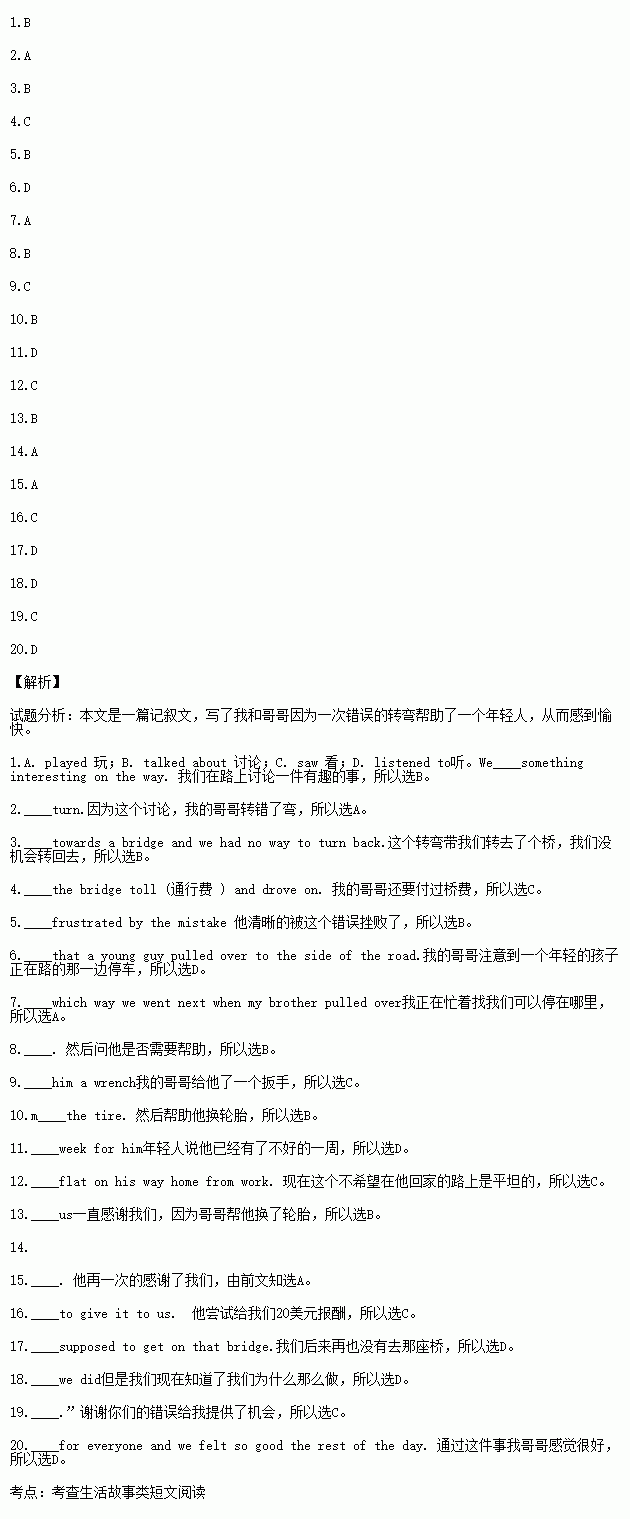题目内容
My brother and I were driving home together .We something interesting on the way. Because of the conversation, my brother took a turn.
Unfortunately, the turn took towards a bridge and we had no way to turn back. My brother the bridge toll (通行费 ) and drove on. He was frustrated by the mistake and the needless waste of $4.
When we reached an exit slip-way, my brother that a young guy pulled over to the side of the road. I was busy trying to which way we went next when my brother pulled over and asked the guy if he needed any . And he did. He had a flat tire and needed a wrench(扳手) to get it off.
My brother him a wrench, and then began to help him the tire. The young man said that this had been a week for him; earlier he had gotten into a minor car accident, and now this flat on his way home from work. But he called us “breath of fresh air”, and kept us because he really would have been stuck we hadn’t come along.
After we had finished the job he thanked us and pulled out $20 and to give it to us. “No,” my brother said. “We were supposed to get on that bridge. Yet we took a wrong turn. But now we know we did. It was to help you. Thank you for turning our mistake into an opportunity to .”
My brother’s reaction in the situation is a(n) for everyone and we felt so good the rest of the day.
1.A. playedB. talked aboutC. sawD. listened to
2.A. wrongB. leftC. slowD. sudden
3.A. itB. usC. himD. me
4.A. ignoredB. doubtedC. paidD. refused
5.A. finallyB. clearlyC. surprisinglyD. unluckily
6.A. orderedB. explainedC. announcedD. noticed
7.A. find outB. make outC. point outD. block out
8.A. adviceB. helpC. foodD. money
9.A. returnedB. soldC. gaveD. showed
10.A. makeB. changeC. fixD. buy
11.A. normalB. busyC. funnyD. bad
12.A. severeB. dangerousC. unexpectedD. disappointed
13.A. greetingB. thankingC. callingD. praising
14.A. ifB. afterC. asD. though
15.A. againB. alsoC. tooD. once
16.A. pretendedB. waitedC. triedD. agreed
17.A. frequencyB. sometimesC. seldomD. never
18.A. whenB. whereC. howD. why
19.A. enjoyB. learnC. serveD. rest
20.A. wayB. opportunityC. promiseD. lesson

